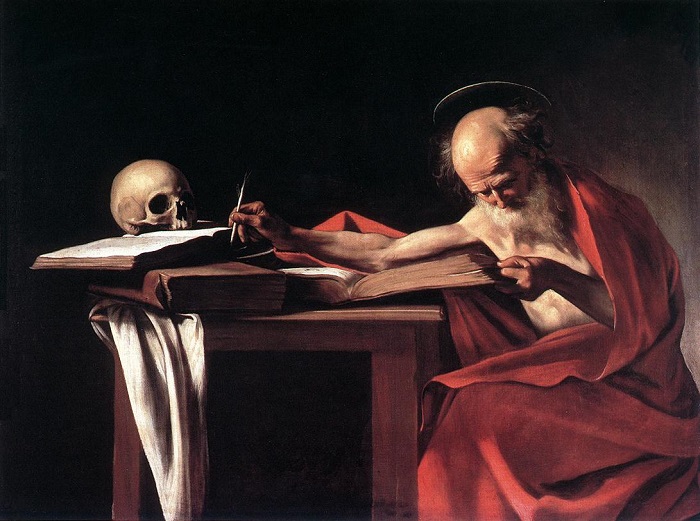Riddle: what is the link between a certain Eusebius Sophronius Hieronymus Stridonensis, born in the IV century in present day Croatia, and your translation agency?
Riddle: what is the link between a certain Eusebius Sophronius Hieronymus Stridonensis, born in the IV century in present day Croatia, and your translation agency?
Hi, my name is Eusebius
If you were told that the little Eusebius was born on a beautiful day in 347 on a lovely estate that his parents owned on the border of Pannonia and Dalmatia, would that help you? No? And if we added that fact that at 12 years old, he went to study in Rome, where he became a fan of the writings of Cicero? Still no? What about in 375 he went off to do penance for his love of pagan literature in the Syrian Desert? Then three or four years later he was ordained as a priest in Antioch? That in 382 he returned to Rome where he became advisor to Pope Damasus 1? That he was asked to review the Latin translation of the Bible?
Happy birthday Jerome!
A final element to the answer: on 30 September, we celebrate (with great fanfare) Saint-Jerome. However, St. Jerome is nothing more than a stage name for our friend Eusebius… Now you understand: when zealous professionals from your favorite specialized translation agency find themselves lost in translation, they certainly appeal to the virtually inexhaustible resources of our linguistic services. But they also send a discreet prayer to Saint Jerome. The patron saint of translators. Those who find translations with untranslatable expressions, provide hyper-specialized glossaries for this super-size medical translation, set up seventy-minute hours for this other urgent financial report translation, restore corrupt files…
Jerome of Stridon, the market leader of biblical translation
Jerome of Stridon is one of the first few to use the Hebrew version of biblical texts for their interpretation. At the time, this approach was a ground-breaking in Christianity which was based on the Septuagint (Greek version) and its translations. Jerome´s language skills allowed him to create a unified translation of the Bible. This version, known as the Vulgate, would become the official Bible from the time of the Council of Trent (XVI century). This is well worth a dedication, don’t you think?
Definitely, you might say. However is that to say that your documents are at the mercy of the transcendental grace of a monk who died and was buried sixteen centuries ago? Far from it. Your legal, marketing or other translations are in good hands, neither holy nor skeletal. It was simply a nod to Jimmy. You never know, it could still be used…
Translation into English: Chloe Findlay
Discover our translation services.



